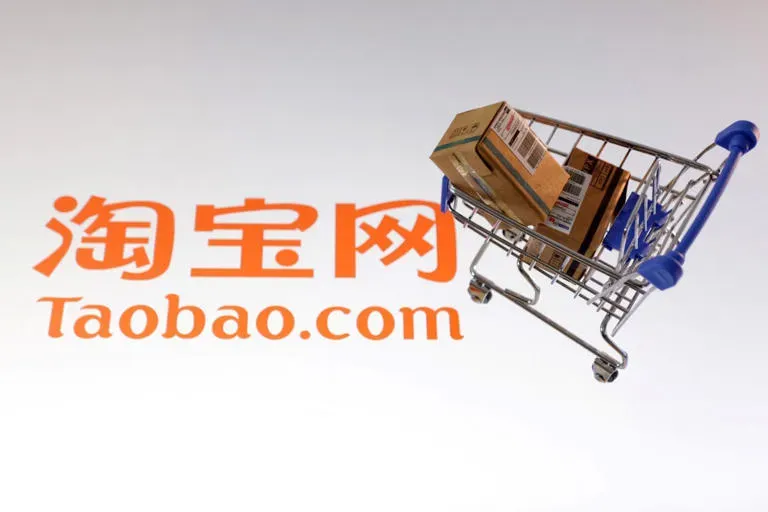In China’s dynamic economy, the sector of instant commerce has emerged as a battleground for major e-commerce players like JD.com, Meituan, and Alibaba. These companies are vying for dominance by cranking up delivery speeds and enticing consumers through substantial subsidies, such as the jaw-dropping figures associated with JD.com coffee prices. With a massive gig economy supporting their operations, these instant delivery platforms are transforming how consumers access everyday goods, from meals to new gadgets. Amid fierce competition, Meituan is pushing back with aggressive pricing as well, igniting a price war that benefits the consumer but poses significant risks to the profitability of these giants. As the instant delivery market evolves, understanding the implications of such rapid changes becomes crucial for industry watchers and consumers alike.
The rapidly growing field of swift delivery services in China is gaining traction, often referred to as the “instant delivery” or “on-demand commerce” sector. Companies like Alibaba and JD.com are not only enhancing their logistics networks but also investing exorbitantly in price cuts to attract more customers. These initiatives are fueled by a competitive atmosphere, where rivals such as Meituan are striving to capture a larger share of the market. With each player launching unique promotions and subsidies, the stakes are heightened as they navigate the complexities of the gig economy. Ultimately, this fierce rivalry shapes the future of e-commerce in China, as companies battle over market share while consumers enjoy the immediate benefits.
The Surge of Instant Commerce in China
Instant commerce in China has transformed the e-commerce landscape, featuring rapid delivery options ranging from groceries to electronics. This sector has grown exponentially, driven by the integration of the gig economy, where thousands of delivery drivers use scooters to fulfill customer orders almost instantly. Key players like JD.com, Alibaba, and Meituan have invested heavily in establishing vast delivery networks to meet consumer demand for speed and convenience, which has resulted in their aggressive competition for market share.
This rise of instant commerce indicates a shift in consumer preferences towards fast, convenient shopping experiences. For instance, JD.com recently expanded its delivery options to include same-day service, setting a new standard for immediate gratification in retail. The rapid adoption of this model shows how vital quick delivery times are for customer retention and satisfaction in the digital shopping era.
Impact of Subsidies on Market Dynamics
The implementation of large-scale subsidies by e-commerce giants profoundly impacts the market dynamics in the instant commerce sector. JD.com and Alibaba have been at the forefront, pouring billions into subsidizing coffee prices and other everyday items to attract consumers. For example, JD.com started selling coffee at a strikingly low price of 2 yuan, resulting in a surge in orders and placing immense pressure on profit margins.
These subsidies, while advantageous for consumers, raise concerns regarding the sustainability of such practices. As market players rely on discount strategies, they may experience short-term growth at the expense of long-term profitability. For instance, despite initial successes, both JD.com and Meituan have reported stock price declines, signaling potential investor concern regarding the viability of these aggressive pricing tactics.
Competitor Strategies in Instant Delivery
Within the instant delivery market, competitors have adopted various strategies to maintain an edge over one another. Meituan, for instance, has launched a 24/7 ‘flash shopping’ platform that guarantees deliveries within 30 minutes, directly challenging JD.com’s traditionally robust delivery service. This indicates a strategic diversification beyond food, enhancing Meituan’s foothold in everyday consumer goods.
Moreover, both JD.com and Meituan have accused each other of anti-competitive practices, revealing the high stakes involved in the instant commerce sector. As they aggressively pursue market expansion, these companies are expected to innovate continuously, adapting their delivery models and enhancing service efficiency to outpace the competition.
Regulatory Scrutiny and Its Effects
As competition intensifies in China’s instant commerce sector, regulatory bodies have begun scrutinizing the practices of major players like JD.com, Alibaba, and Meituan. The government’s involvement signals a recognition of the potential pitfalls of such aggressive competition, particularly concerning fair market practices and the gig economy’s labor conditions. Authorities have reiterated the importance of lawful competition, which aims to prevent monopolistic behaviors that could harm consumers and the market.
This regulatory pressure could impact how e-commerce giants structure their subsidy programs and overall pricing strategies. With possible repercussions for financial backers and stakeholder interests, the outcome of these regulatory assessments may ultimately shape the future landscape of instant commerce, pushing firms to adopt more sustainable and ethically responsible practices.
Consumer Benefits in the Price War
Consumers in China have reaped significant rewards due to the price war among leading e-commerce companies. As JD.com, Alibaba, and Meituan race to win over shoppers, they are forced to lower prices and improve service quality, resulting in a wide array of options for consumers who now enjoy deep discounts on products such as coffee and food. This competitive environment has made shopping more accessible, rewarding treasuring convenience while driving up order volumes.
Moreover, the plethora of promotional offers and discounted rates fosters a culture of price sensitivity among consumers, encouraging them to shop around and select the best deals. This raises the stakes for e-commerce players who must continually innovate to keep their customer bases engaged and satisfied in the long run.
Financial Risks Amidst Competitive Strategies
While the influx of new orders signifies growth in the user base for instant commerce, the financial risks associated with continuous subsidies cannot be overlooked. Companies like JD.com and Meituan report substantial operational earnings, yet analysts warn of possible downturns in subsequent quarters as aggressive spending outpaces revenue generation. With JD.com forecasting losses as high as 10 billion yuan from its subsidy schemes, the long-term sustainability of this rapid growth is questionable.
As these companies navigate the nuances of market dynamics, the balance between user growth and financial health remains tenuous. Their ability to adapt to changing consumer behaviors and elevate profit margins in a hyper-competitive environment will be crucial to their future success in the instant commerce arena.
Gig Economy’s Role in Instant Commerce
The gig economy plays a pivotal role in shaping the instant commerce market in China. With the high demand for rapid delivery, e-commerce giants rely heavily on flexible labor forces of independent contractors who fulfill orders at lightning speed. This model not only allows companies like JD.com and Meituan to scale rapidly but also offers drivers an opportunity to earn income on their own terms.
However, the reliance on gig workers raises important issues regarding job security and fair compensation. With the competition between these companies driving down prices, the pressure on drivers to perform can be intense, highlighting the need for equitable labor practices. As the sector continues to evolve, addressing these challenges will be essential for fostering a sustainable gig economy that upholds workers’ rights and well-being.
Future Outlook for Instant Commerce in China
The future of instant commerce in China is rife with opportunities and challenges. As e-commerce giants continue to expand their offerings and bolster delivery capabilities, the sector is set to grow significantly, driven by consumer demands for convenience and speed. However, the ongoing price war casts a shadow over this growth, as companies must balance aggressive discounting strategies with the need for profitability.
Moving forward, firms in the instant commerce landscape will likely focus on innovative delivery solutions and enhanced customer engagement strategies to differentiate themselves. As they navigate the complexities of the market, their ability to adapt to regulatory measures and labor dynamics will ultimately determine their success in China’s rapidly evolving e-commerce environment.
Conclusion: Navigating the Competitive Landscape
The evolving price war in China’s instant commerce sector highlights the lengths e-commerce giants are willing to go to capture market share. With significant financial investments in subsidies and delivery network expansions, JD.com, Meituan, and Alibaba are reshaping the consumer experience while jeopardizing their profitability in the process. The competition is fierce, and with rapid developments in regulatory scrutiny, these companies must be prepared to adapt to remain viable.
Ultimately, this race for instant commerce supremacy will require careful navigation of market dynamics, consumer expectations, and regulatory landscapes. As companies refine their strategies, the decisions they make in the coming months will be pivotal in determining not only their future financial outlook but also the overall health of the instant commerce sector in China.
Frequently Asked Questions
What is the current state of JD.com coffee prices in China’s instant commerce market?
JD.com is currently offering competitive coffee prices, with listings as low as 10.9 yuan (approximately $1.50). This pricing is part of a broader trend in China’s instant commerce market, where companies like JD.com are leveraging subsidies to attract consumers and compete with rivals such as Meituan and Alibaba.
How are Meituan and JD.com competing in the instant delivery market?
Meituan and JD.com are in fierce competition within the instant delivery market by expanding their delivery networks and offering significant subsidies to consumers. Meituan has launched a 24/7 ‘flash shopping’ service pledging 30-minute deliveries while JD.com has adopted a strategy of deeper discounts and hiring full-time drivers to enhance service.
What impact do Alibaba’s e-commerce subsidies have on the instant commerce sector in China?
Alibaba’s substantial e-commerce subsidies, including a 50 billion yuan program for its Taobao Instant Commerce platform, are driving down prices across the instant commerce sector in China. This aggressive subsidy strategy is aimed at increasing market share but raises concerns about long-term profitability for all players involved.
How does the competition among JD.com, Meituan, and Alibaba affect coffee prices in China?
The competition among JD.com, Meituan, and Alibaba has led to significant drops in coffee prices, with reports indicating prices falling as low as 2 yuan (about $0.28) due to aggressive discounting tactics. This price war aims to incentivize consumer spending in the rapidly growing instant commerce sector.
What role does China’s gig economy play in instant commerce delivery services?
China’s gig economy plays a crucial role in instant commerce delivery services, providing a vast workforce of scooter drivers that enable rapid product delivery. This large labor force is essential for companies like JD.com and Meituan as they strive to meet increasingly demanding delivery timeframes in a highly competitive market.
What are the potential financial implications for JD.com and Meituan amid the current instant commerce price war?
The ongoing price war in the instant commerce sector may lead to significant financial implications for JD.com and Meituan. Analysts predict potential profit declines for JD.com due to aggressive subsidy strategies, with losses expected to exceed 10 billion yuan. Meituan, despite reporting a profit increase in early 2025, has also cautioned about possible downturns in future quarters as competition intensifies.
How has the regulatory environment responded to the price war in China’s instant commerce sector?
In response to the escalating price war, China’s market regulators have summoned major players like JD.com, Meituan, and Alibaba to emphasize the importance of fair competition. While concerns exist regarding the long-term sustainability of these subsidy-driven pricing strategies, no significant regulatory actions have been implemented to curb the competition.
What strategies are companies like JD.com employing in the coffee delivery segment within instant commerce?
In the coffee delivery segment, JD.com is employing strategies such as offering significant subsidies and discounts to attract customers, alongside enhancing its delivery infrastructure. The company has also increased the hiring of full-time drivers to improve service quality and expedite delivery times, positioning itself strongly in the instant commerce landscape.
What are the consumer benefits of the price war happening in China’s instant delivery market?
Consumers are benefitting from significantly lower prices and diverse product offerings in China’s instant delivery market as a result of the intense price war between JD.com, Meituan, and Alibaba. These companies are providing access to a wide range of products at drastically reduced costs, enhancing overall consumer satisfaction.
Is the current pricing strategy sustainable for companies in China’s instant commerce market?
The sustainability of the current pricing strategies in China’s instant commerce market is questionable. While the aggressive subsidy tactics are benefiting consumers in the short term, they might strain the profitability of companies like JD.com, Meituan, and Alibaba if continued over the long term.
| Key Points | Details |
|---|---|
| Competitive Delivery | China’s e-commerce players are vying for faster delivery times, utilizing a significant labor force and gig economy. |
| Expansion and Subsidies | JD.com, Alibaba, and Meituan are increasing their delivery networks and pledging billions in subsidies to consumers and merchants. |
| Impact on Share Prices | Consumer-friendly prices contrast with declining share prices and concerns over earnings for JD.com, Meituan, and Alibaba. |
| Price War Dynamics | The competition has led to steep discounts; JD.com offered coffee at about $1.50 while Meituan offered a breakfast set for $3.84. |
| Regulatory Oversight | China’s regulators have emphasized lawful competition as the price war intensifies, but no significant action has been taken. |
| Financial Implications | Despite user growth, future profitability remains uncertain, with warnings of potential downturns for Meituan and JD.com. |
Summary
China instant commerce is experiencing a major transformation as e-commerce giants JD.com, Meituan, and Alibaba engage in a fierce price war. This competition is leading to increasingly aggressive strategies to attract consumers, including steep discounts and enhanced delivery services. However, the potential impact on long-term profitability has raised concerns about the sustainability of these practices. As these companies navigate this competitive landscape, the focus remains on balancing consumer benefits while maintaining healthy financial outcomes.



